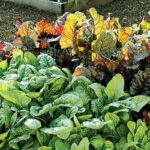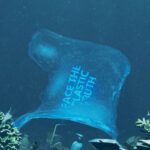Recyclable plastics can play an important role in helping the environment. Despite this, throwing any plastic into the recycling bin is not the best thing to do. To recycle plastics properly, you must know which ones should be thrown out. The good news is that once you’ve learned these details, you’ll be making a difference in reducing waste.
In the absence of recycling, plastic is either disposed of in landfills or incinerators or is disposed of in the oceans. As a result of incinerating plastics, carbon dioxide is produced, which causes global warming. According to the type of plastic, it can take between five and 600 years for plastic to decompose in a landfill. A plastic bottle takes 450 years on average to disintegrate.
Here’s what the Nature Advocate, KDR, has to say about recycling plastics.
Plastic Recyclability
Plastic recycling is more complicated than you believe. You must clean out any liquids and foods (other than water) from the bottles before disposing of them. If the material is contaminated, it may infect an entire volume of plastics, prompting the recycling plant to send the entire volume to a dump.
When recycling plastic containers, look to see if the label says “crush to conserve.” If this is the case, unscrew the cap and smash the bottle by squeezing it from the neck and bearing down. After crushing it, replace the cap on the container so that it may be recycled as well.
Understand which Plastics are Compostable
All polymers are not created equal. In reality, many individuals throw all of their plastics in the compost bin without understanding whether or not they are compostable. If it is not recyclable plastic, the personnel will dispose of it in the garbage.
So, how can you find out which plastics are acceptable? Check with your nearby recycling center to see whether they take these. Many recycling organizations include extra info about what may and cannot be recycled on their websites. If your regional disposal firm provides your recycling container, the details may be listed on the side of the bin. Plastic containers generally include numerals on the bottom that indicate the type of plastic. #1 and #2 plastics, for example, are usually always biodegradable, but #6 plastics are not always acknowledged. Also, if the plastic is labeled “compostable,” it must be composted rather than recycled.
“CHECK THESE SIMPLE MEASURES AND ALLOW NATURE TO BREATHE.“




